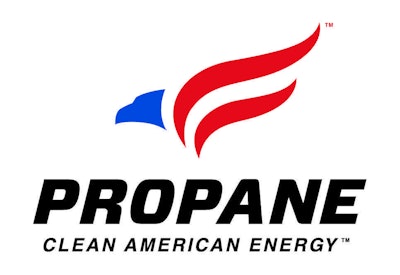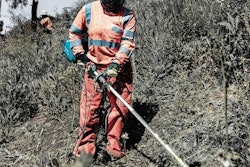Landscapers toying with the concept of switching their fleet to propane are running out of time if they want to take advantage of a rebate incentive program.

“Since the incentive program was made available again in October of 2015, we’ve seen a lot of interest throughout the commercial landscape industry,” said Jeremy Wishart, deputy director of business development for PERC. “If current application rates hold steady, we expect the program to sunset by the end of April, though we hope to roll it out again.”
Some companies that have capitalized on this opportunity have already seen the savings. Phil Hagen, owner of McHenry Garden Center in McHenry, Illinois, recently purchased 10 new propane mowers in time for spring and participated in PERC’s rebate program.
“Would I suggest this program to my competitors? No. But to anyone outside of this area? Absolutely,” he said.
Through his nearly 20 years in the business, Hagen’s company never considered switching to propane. However, when he set his sights on winning business from the city of Lake Forest, he encountered their pollution and noise ordinances.
“They only wanted mowers run at certain decibels and at certain hours, so it limited our crews,” Hagen said. “They were really pushing for green landscaping.”
As he began to research what it would take to meet such requirements, he talked to Mike Halloran, who owns Mowerworks Gravely of Chicago. Halloran told him about how Cary Park District used propane mowers and Hagen began to see the benefits of converting.
“The more we investigated, the more we saw that financially we were silly not to go propane,” he said. “I think a lot of landscapers, we’re old school and kind of set in our ways.”
Hagen has not only seen financial savings but also labor savings in his case. Instead of having his employees unload the mowers off the trailer to refuel them, they can now leave the mowers on the trailer and simply switch out the bottles.
“From an operation stand point, the propane guys make it easy for guys who are switching over, and they even set up a cage for us to store the propane on site for free,” Hagen said.
According to the Northwest Herald, Halloran has seen an increase in sales of propane mowers the past two years. The benefits of propane power include reduced emissions, lower fuel costs, less maintenance and a longer-lasting engine.
“From a shop point of view, the main thing is that the engine is going to last twice as long,” Halloran said. “On the maintenance end of it, you can cut your oil changes in half.”
Already Hagen has heard from his crews that they believe the mowers run cooler, but weather could be a factor. Since the article in the Northwest Herald was published on Sunday, he has received 42 calls from existing customers and potential ones, including a high-end HOA that wants to go green.
Seeing that alternative, sustainable fuel sources are producing both savings and added business, Hagen has also started looking into the new Ford F-150 that is fueled by both gasoline and compressed natural gas.
 A Ringers Landscaping employee uses a Gravely Pro-Walk Hydro LP 48.
A Ringers Landscaping employee uses a Gravely Pro-Walk Hydro LP 48.Photo: Ringers Landscaping
Another Illinois landscaping company has recently switched its fleet to propane, but rebates were simply a happy coincidence for Ringers Landscaping. This company was driven to find an alternative fuel due to its focus on sustainability.
Ringers Landscaping’s ultimate goal is not to rely on gasoline at all, so it is working slowly toward that goal with its sustainable action plan. In 2014, the company tested propane power by converting one mower. After seeing that it worked well, they traded in the rest in 2015 for propane mowers.
Fortunately for Ringers, the state of Illinois was offering $1,500 for every new propane mower purchased and the federal government was offering $2,000 per propane mower in 2015.
“Obviously it was a good move for me in 2015, but I was going to make the switch eventually anyway,” Erik Ringstrand, owner of Ringers Landscaping, said Monday. “You’re saving money with propane. There is less maintenance. It’s better business. It’s more efficient.
“I understand big companies can’t convert easily, but for small companies with 10 mowers or less, it should be a no-brainer.”
Ringers Landscaping polled their customers last year and 90 percent said that it was important to them that the company used an alternative fuel that was better for the environment.
“I think customers look at our industry as dirty and when companies like ours are taking an interest in being cleaner, it makes us stand out,” Ringstrand said. “We get clients all the time, and we may be $5 or $10 more than our competitors and people will still choose us because they know we’re using propane.”









